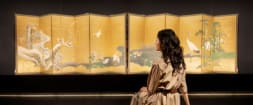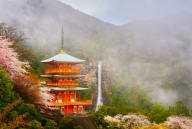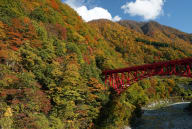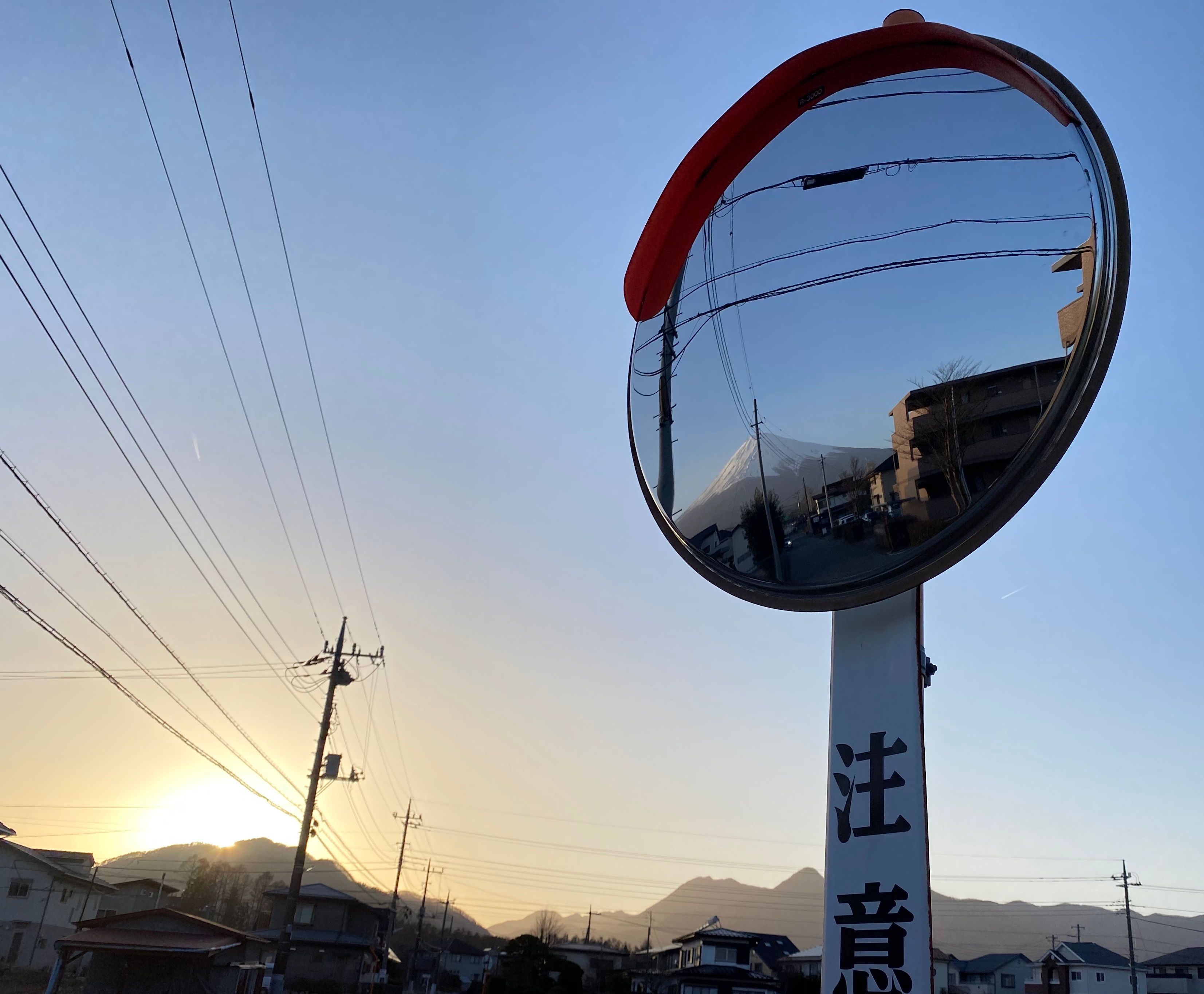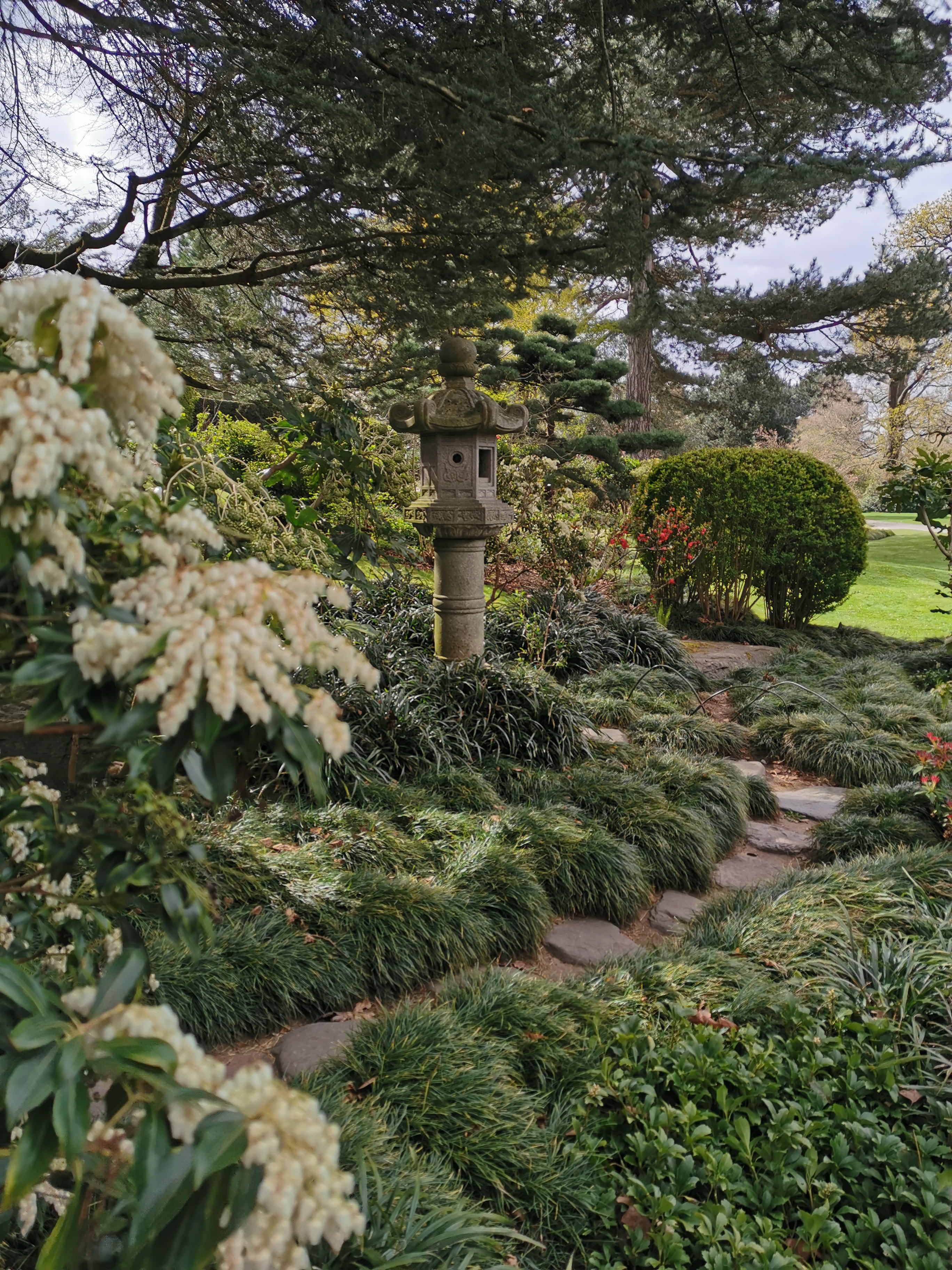
When Ghibli-fan Michael Leader discovered that his colleague and friend, Jake Cunningham, had never seen the films that introduced us to the likes of the cuddly forest spirit, Totoro, or the gluttonous entity known as No-Face, they decided there was only one thing to do: start a podcast together! Michael gives us the inside scoop on the Ghibliotheque podcast’s journey over the years, personal highlights and how he fell in love with Japan in the first place.
Hi Michael, thanks for joining us today. To start with, could you tell us a little about yourself?
Hello! It’s a pleasure to be here. I’m Michael, I am a writer and a podcaster working mostly in the world of film. I have been a film critic for about 15 years, and for the last 4 years I have co-hosted and co-produced the podcast Ghibliotheque, about the films of Studio Ghibli, which has blossomed into something of a multimedia project encompassing two books and dozens of film screening events up and down the country.
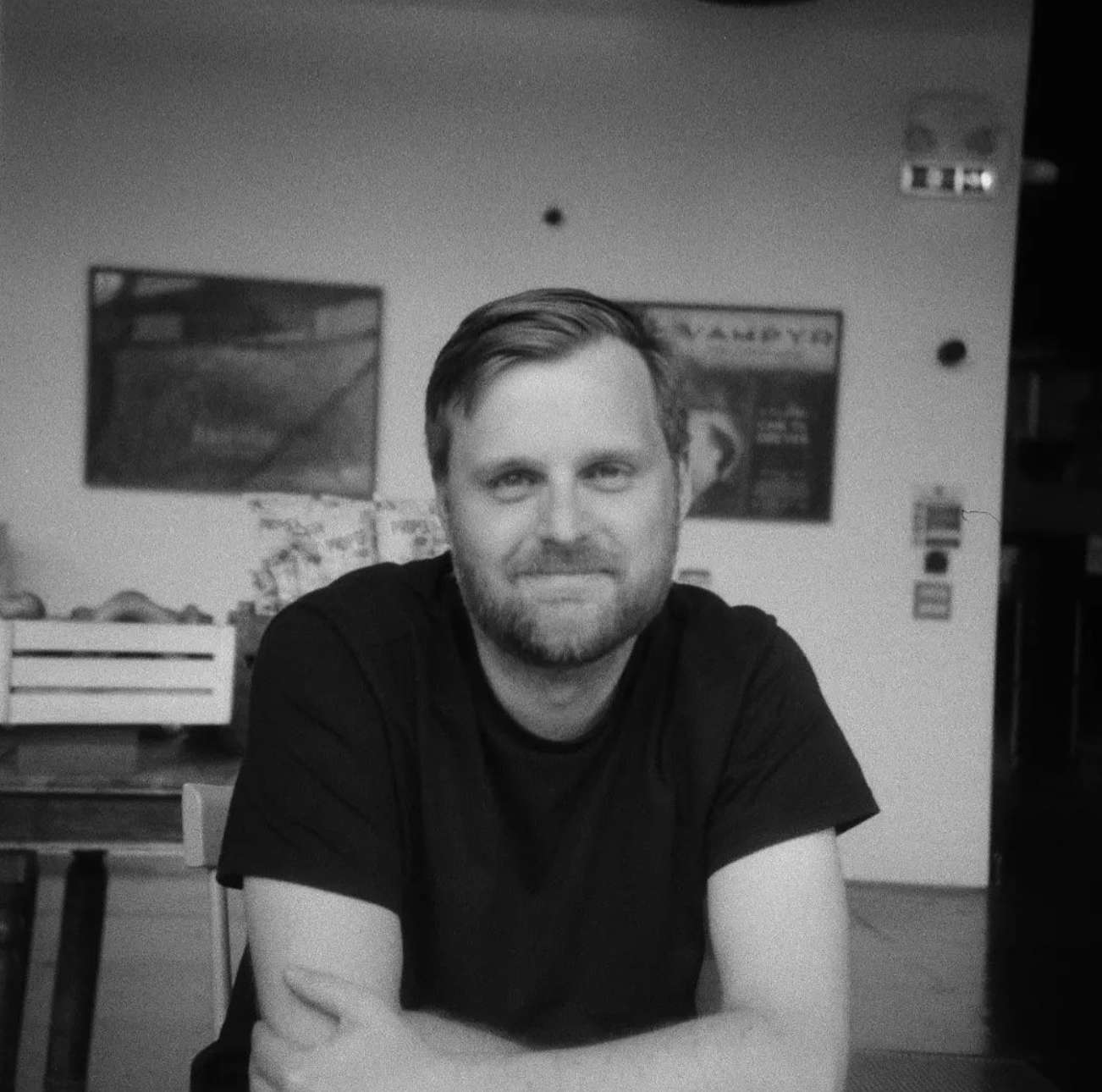
Back in the summer of 2018, I was working for Film4, the TV channel that for many years had the rights to show Studio Ghibli’s films. We were about to present the most complete retrospective of Ghibli films to date, and were looking for ways to contextualise and celebrate it. One day, I was in the office, working across from my colleague Jake Cunningham, and it came up in conversation that he’d never seen a Studio Ghibli film.
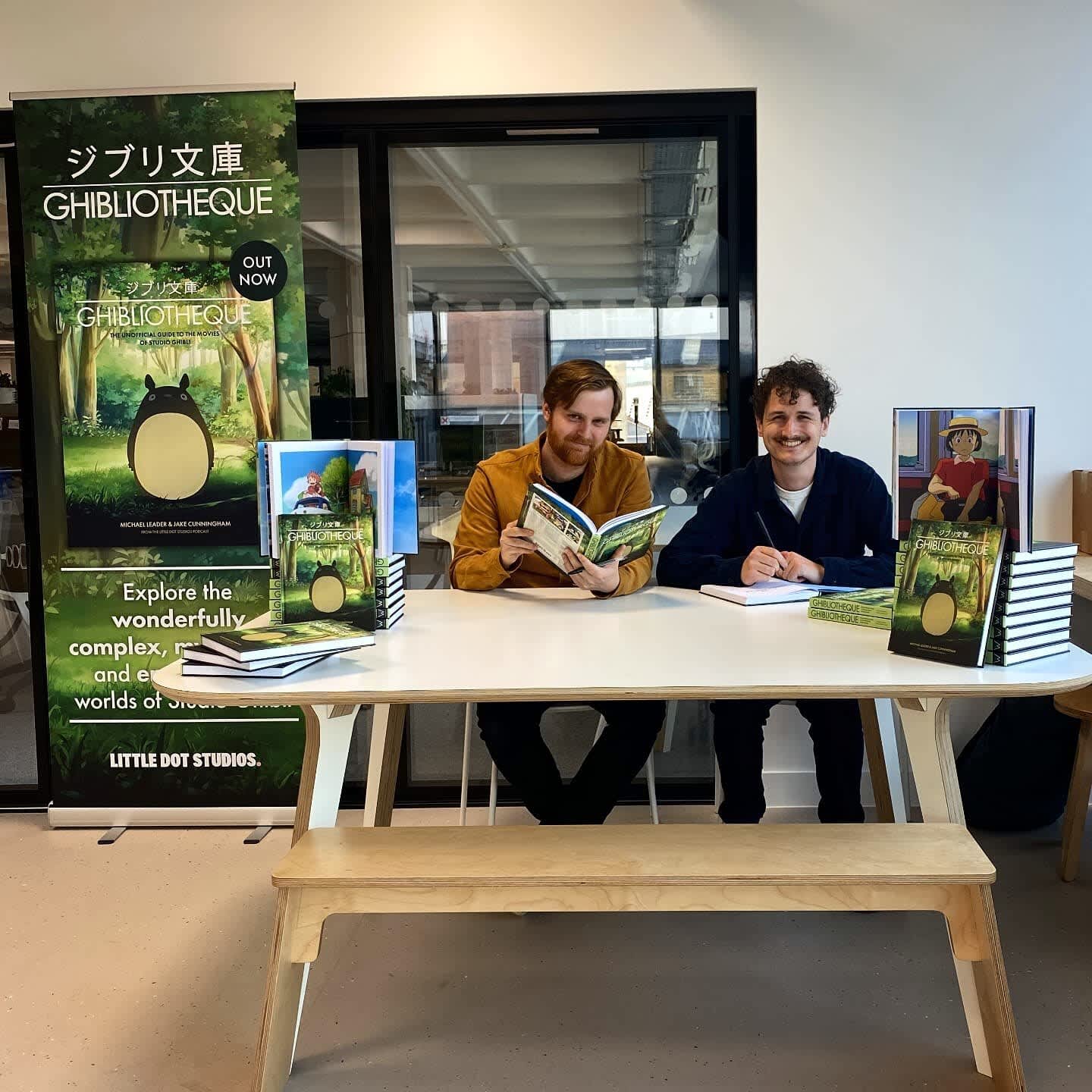 Michael (left) with his Ghibliotheque co-founder and co-host, Jake Cunningham (right) on the tour of their first book, 'Ghibliotheque: The unofficial guide to the movies of Studio Ghibli'
Now, I’m a huge fan of Ghibli, and have been ever since seeing Princess Mononoke and Spirited Away as a teenager, so before I jumped across the desk and grabbed Jake by the scruff of the neck, we decided the best way to resolve this would be to go on a podcast journey together, one film at a time, with me giving a history lesson about the importance of each film, followed by Jake giving his assessment as a first-time viewer and newcomer to the world of Ghibli.
Michael (left) with his Ghibliotheque co-founder and co-host, Jake Cunningham (right) on the tour of their first book, 'Ghibliotheque: The unofficial guide to the movies of Studio Ghibli'
Now, I’m a huge fan of Ghibli, and have been ever since seeing Princess Mononoke and Spirited Away as a teenager, so before I jumped across the desk and grabbed Jake by the scruff of the neck, we decided the best way to resolve this would be to go on a podcast journey together, one film at a time, with me giving a history lesson about the importance of each film, followed by Jake giving his assessment as a first-time viewer and newcomer to the world of Ghibli.
 Michael and Jake in the recording studio during the early months of the Ghibliotheque podcast
That was back in 2018, where it seemed that the Ghibli film library would be more than enough to keep us going. But eventually we did get to the end of it, and since then we have branched out. We travelled to Japan in 2019 for a special miniseries, we’ve looked at other filmmakers who have created similarly wonderful animation (such as Satoshi Kon, Cartoon Saloon and Mamoru Hosoda), and we’ve interviewed all sorts of people about their work with, or love of, Studio Ghibli.
Michael and Jake in the recording studio during the early months of the Ghibliotheque podcast
That was back in 2018, where it seemed that the Ghibli film library would be more than enough to keep us going. But eventually we did get to the end of it, and since then we have branched out. We travelled to Japan in 2019 for a special miniseries, we’ve looked at other filmmakers who have created similarly wonderful animation (such as Satoshi Kon, Cartoon Saloon and Mamoru Hosoda), and we’ve interviewed all sorts of people about their work with, or love of, Studio Ghibli.

The Ghibliotheque podcast live at Manchester Animation Festival November 2022, presenting the UK Premiere screening of 'Satoshi Kon: The Illusionist', a documentary by Pascal-Alex Vincent about the legendary Japanese film director. The podcast has seen and interviewed an impressive roster of guests from the Japanese animation industry - whose and what was the story or lesson that made the biggest impact on you so far?
It really has been a privilege to speak with so many filmmakers over the years. Speaking with former Ghibli president and long serving producer Toshio Suzuki was a definite highlight, as was talking to Goro Miyazaki about everything from directing to parenting, and more recently hearing about the various inspirations behind distinctive directors like Masaaki Yuasa and Naoko Yamada. It’s very hard to pick a favourite, but I’d point to Mamoru Hosoda. He was such a thoughtful and generous guest, and his story of finding his voice as an independent filmmaker after working for so long on commercial projects, and then developing that vision as he goes through various life changes, is really inspiring. You can see his worldview change as he goes from young man, to husband, to father from The Girl Who Leapt Through Time, to Summer Wars, to Wolf Children and Mirai. He is also so aware of the world around him, and I think he’s probably the best cultural commentator working in cinema today in terms of reflecting on the growing role the internet and social media play in our lives, across his trilogy of films from Digimon Adventure: Our War Game, to Summer Wars, and most recently Belle.
 Michael and Jake presenting their live show at HOME as part of Manchester Animation Festival's 'MAF presents' series in May, 2022
Michael and Jake presenting their live show at HOME as part of Manchester Animation Festival's 'MAF presents' series in May, 2022
How did you become a Japan fan? (Was it through Ghibli?)
Ghibli was definitely a factor, but I’m of the generation where it was almost inevitable that you’d become infatuated with Japan if you were at all interested in global pop culture. Video games, anime, manga, music, cinema - it all hit me at just the right age. As a console gamer kid, my favourite games were products of Japan, from Mario and Sonic to Castlevania and Metal Gear Solid; as a teenager in the early 2000s, anime series like Cowboy Bebop, FLCL, Dragonball and Neon Genesis Evangelion were the most eye-opening shows on telly; and, as a growing film fan, I became obsessed with the work of Akira Kurosawa, Yasujirō Ozu and, later, Hirokazu Kore-eda, who I wrote a thesis on at university, and have had the honour of interviewing several times over the years.

Michael and Jake recreating a scene from 'Whisper of the Heart' at Konpira-gu Shrine, Sakuragaoka, Tokyo Your favourite Studio Ghibli film is known to be ‘Whisper of the Heart’ - what about the film in particular speaks to your heart? (pun intended!)
Oh, it’s just wonderful. I like to highlight that as my favourite because it’s not quite as well known as the other films in the catalogue. It’s one of the few Ghibli films that are set in the modern day, and it has no fantasy framework around it. It’s the story about a young girl growing up in a boring suburban town, dreaming of being a writer, and yet it is still so magical. It shows how animation, and a fertile imagination, can transform a humdrum setting into something bigger than life.
 Recreating another scene from 'Whisper of the Heart'
There are sequences, even single shots, in that film, that I would love to live in - such as the spectacular scene where the main character is getting the train into town, and a cat jumps on the bench next to her, and leads her off on a small journey of discovery. It’s a very wholesome slice-of-life film, but there’s a great deal of wisdom in it, too, about how we look at the world, how we identify our talents, how we hone and develop them, and how our relationships with other people can enrich our lives.
Recreating another scene from 'Whisper of the Heart'
There are sequences, even single shots, in that film, that I would love to live in - such as the spectacular scene where the main character is getting the train into town, and a cat jumps on the bench next to her, and leads her off on a small journey of discovery. It’s a very wholesome slice-of-life film, but there’s a great deal of wisdom in it, too, about how we look at the world, how we identify our talents, how we hone and develop them, and how our relationships with other people can enrich our lives.
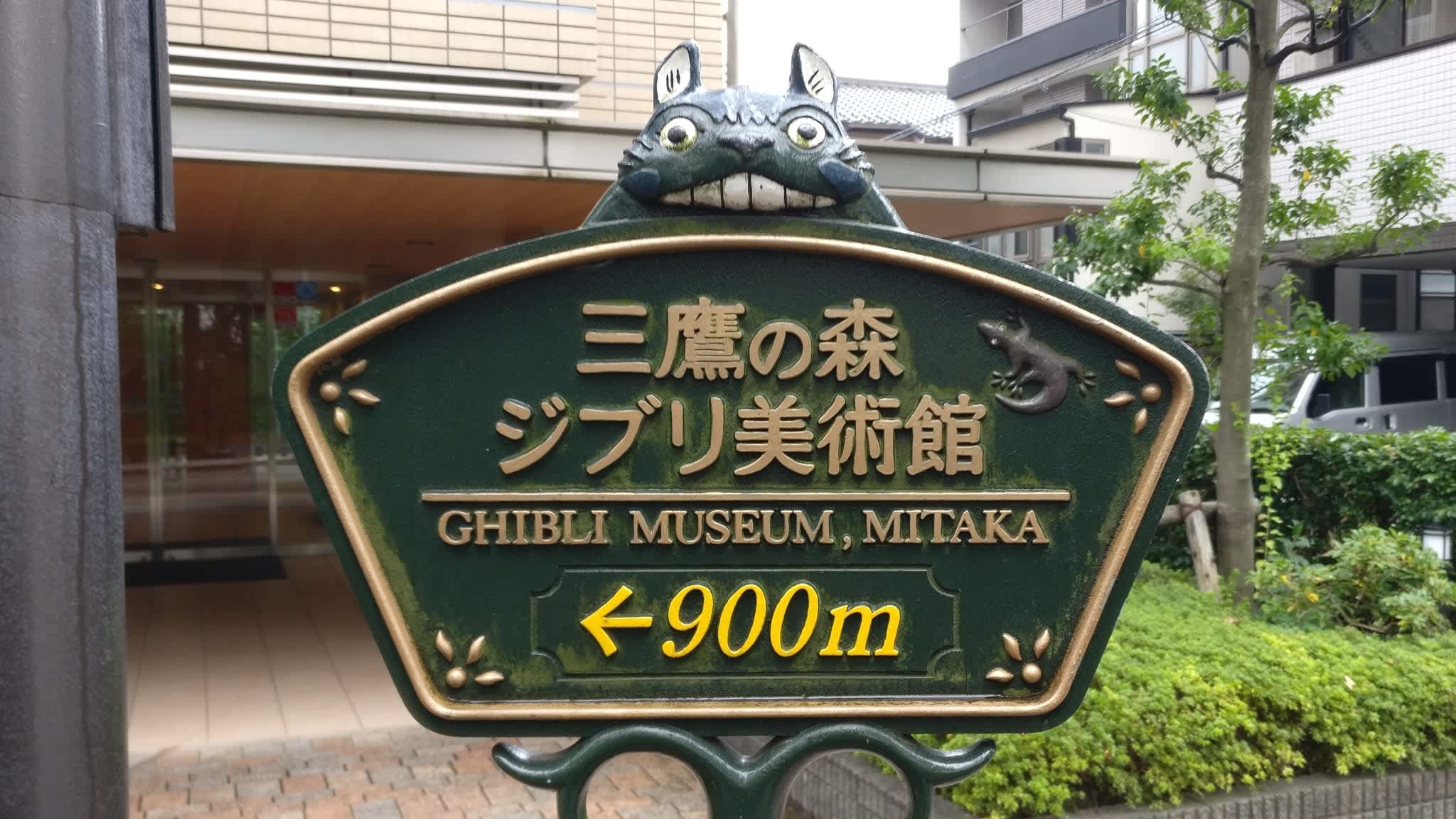 One of the many Totoro signposts to the Ghibli Museum, Mitaka, Tokyo
Do you have any Ghibli-related unpopular opinions?
One of the many Totoro signposts to the Ghibli Museum, Mitaka, Tokyo
Do you have any Ghibli-related unpopular opinions?I think the big one for me - and Jake shares this - is that I don’t particularly like Howl’s Moving Castle, which we’ve found is one of the most beloved Studio Ghibli films! It undeniably has brilliant moments and characters - such as Calcifer and Howl’s mouth-watering fried breakfast - but it’s a bit of a turbulent mess, especially in the second half. That’s no doubt informed by the bleak mindset Hayao Miyazaki was in at the time, due to various worldwide conflicts that were weighing heavily on him, but for me he doesn’t quite manage to make these complex themes cohere as well as in other films like Princess Mononoke and The Wind Rises.
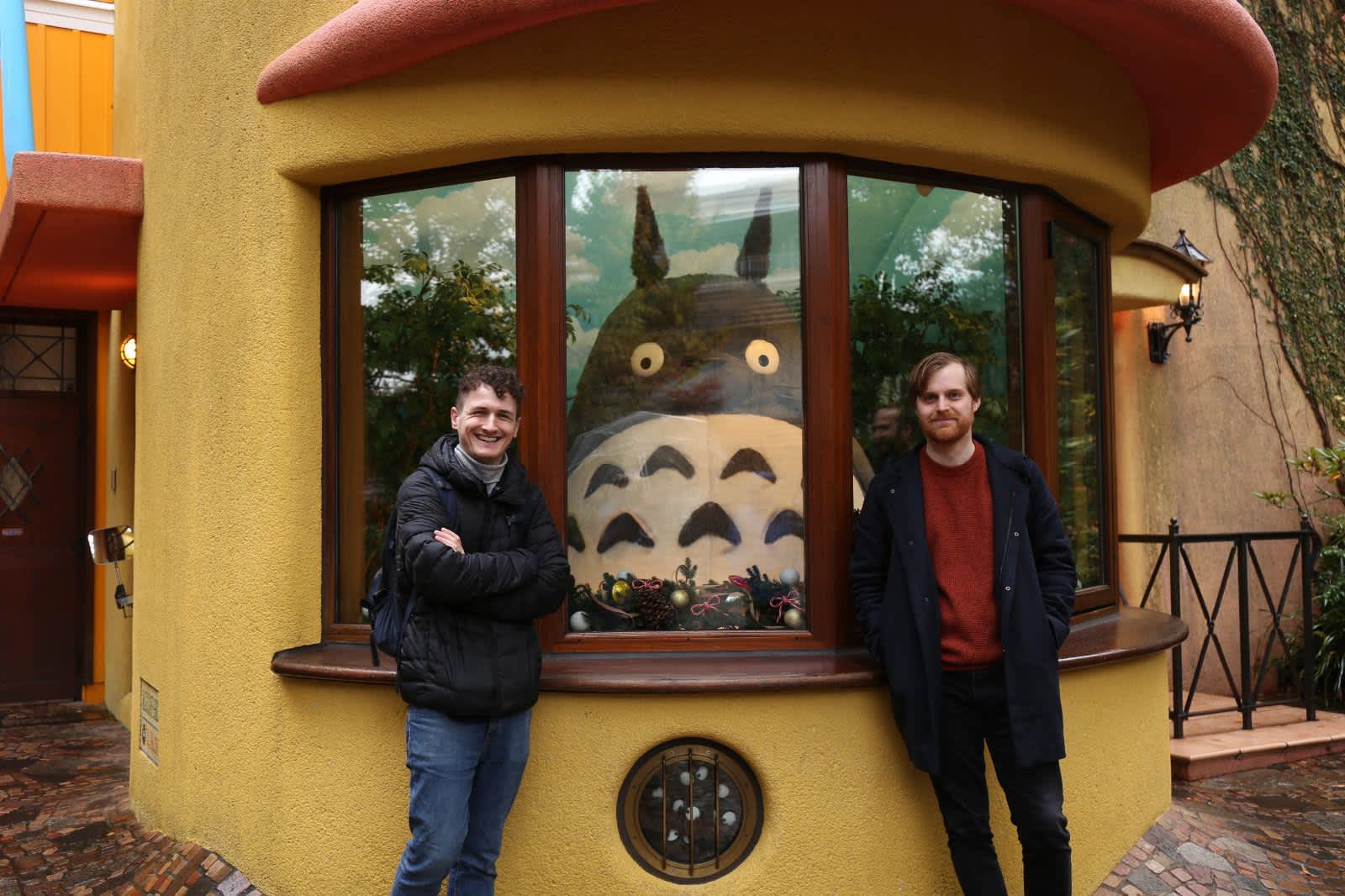 Michael and Jake in front of the Ghibli Museum ticket desk
You (first?) went to Japan in 2019 to visit the Studio Ghibli offices and museum - what was the most memorable experience from that trip?
Michael and Jake in front of the Ghibli Museum ticket desk
You (first?) went to Japan in 2019 to visit the Studio Ghibli offices and museum - what was the most memorable experience from that trip? Yep, that was my first trip and hopefully not my last. It was a bit of a whirlwind trip so we had to pack a lot in. Related to the question above about Whisper of the Heart, I’d say the most memorable part of the trip might be when we went out to the west of Tokyo to Tama, where that film is set. When you pull into Seiseki-sakuragaoka station, the platform jingle is ‘Take Me Home, Country Roads’, the John Denver song that appears in the film, and you can go on a little tour of the locations that they drew inspiration from when making the film. Now, don’t get me wrong, it was very much a quiet suburban town, and it was very indulgent of me to drag Jake and our producers Steph and Harold there, but it confirmed for me the magic that animation can bring, even when representing ‘real life’ in all its mundanity. It made me appreciate that part of the film even more.
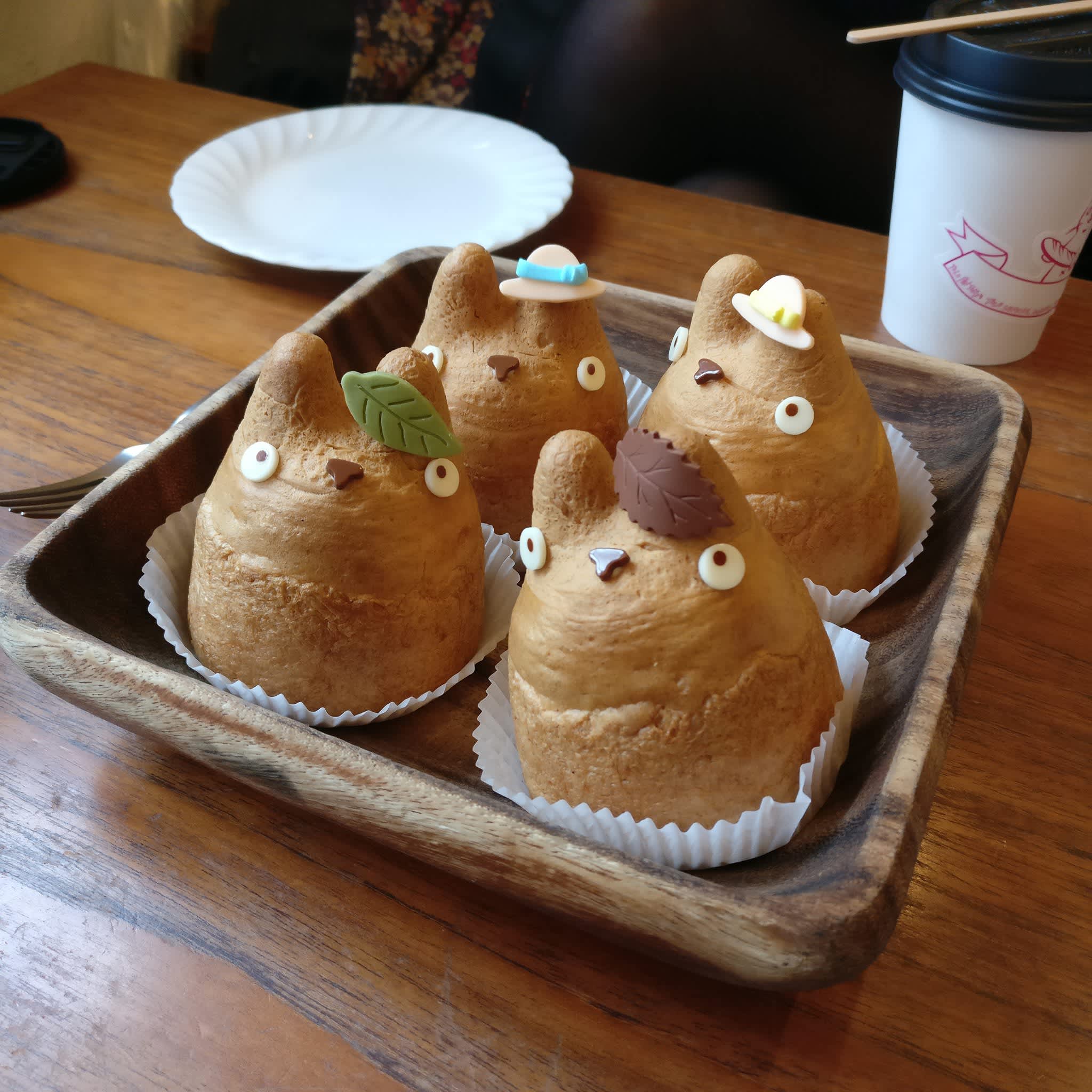
Shiro-Hige's Cream Puff Factory's delightful Totoro-shaped pastries in Setagaya, Tokyo! Outside of mainstream tourist experiences, what was something lesser known you got to do in Japan that you’d recommend other Ghibli-fans see or experience if they get the chance?
100% it would be Shiro-Hige's Cream Puff Factory. This is a small bakery and cafe in Setagaya that has official permission from Hayao Miyazaki to make Totoro-shaped cream puff pastries. It’s a delightful place to visit - very cosy - and they have a full menu of different fillings and flavours to choose from. In the shop they also have various bits of artwork and sketches from Miyazaki himself on the walls. We often joke about wondering what Totoro would taste like - and now you can find out!

Shiro-Hige's Cream Puff Factory's rustic shop sign What would you like to do next time you’re in Japan?
So much! The last time we went, we were only there for a few days, so I feel like we barely scratched the surface of Tokyo. And in fact we only stayed in Tokyo, so top of the list for the next visit would be venturing out to explore other parts of the country. Also, with our Ghibli nerd hats on, the Ghibli Park in Aichi is top of the list! Thanks for talking to us!
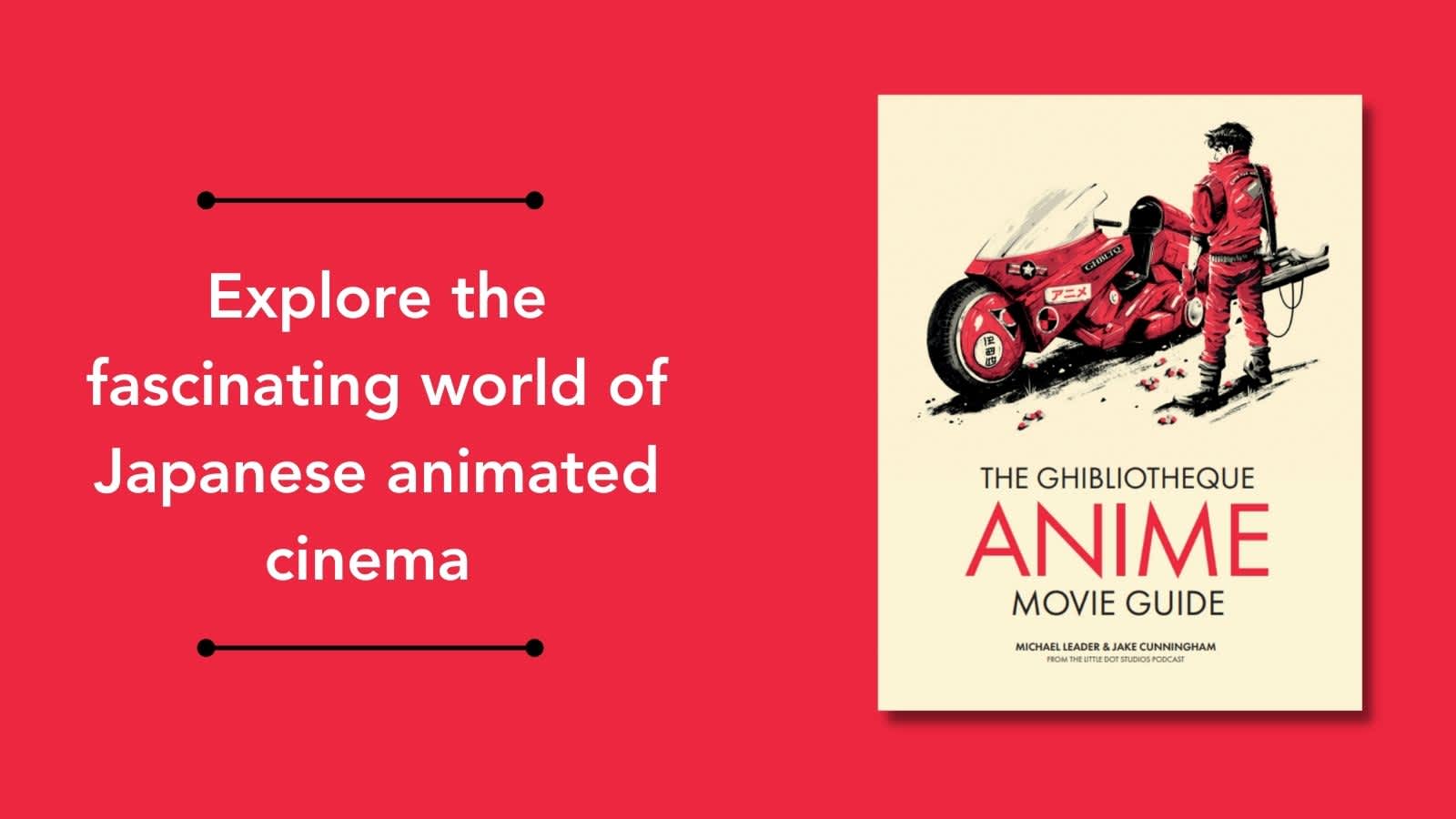
Michael and Jake's second book, 'The Ghibliotheque Anime Movie Guide' is out now. Click here to see where it is available.
You can keep up-to-date with what Michael is working on in and out of the Ghibliotheque podcast through his website or Twitter.
And, of course, make sure to follow the Ghibliotheque podcast on Instagram and Twitter, and click here to listen to the next episode!
Otherwise, be one of the first to hear about our next 'Postcards from Japan' by following us on either Facebook, Instagram or Twitter.













